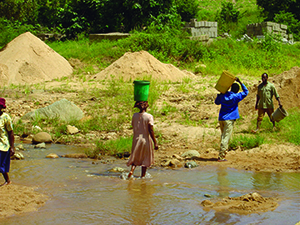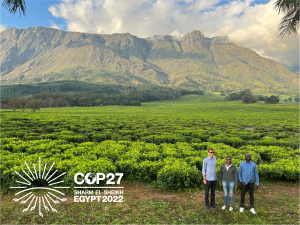Water losses can pay for themselves. Or can they?
Presently, it is not uncommon for African water utilities and municipalities to forgo upwards of 36% of the revenue that they should have received from customers. It is often lost through leaks, theft, and metering and billing problems. In Kenya, where the conference was hosted, this lost revenue is 45%. In other countries such as Algeria and Mozambique, this figure is much higher – 54% and 59% respectively
This week, SIWI African Regional Centre Director, Anton Earle, and I participated in the Global Green Growth Forum Africa conference in Nairobi, and facilitated a session on non-revenue water (NRW). It’s been suggested by water loss specialists for quite some time that the investment made to reduce water losses is paid for from the revenue that would have otherwise been lost. Payback periods of under two years have also been demonstrated.
To help answer the question, “so what needs to be done going forward”, some of the panellists at the session used analogies, and they made for some interesting discussion.
Here is an example, including two interesting points from the ensuing discussion including potential implications identified by the group.
“Which retailer would let 59% of their stock disappear without payment, yet still remain in business?
Such a retailer cannot remain in business. Water services providers that do not address non-revenue water cannot be going concerns and are not creditworthy. Through partnership, we should design incentives that enable utility leaders to run organisations that are financially sustainable and avoid expensive bailouts funded by the taxpayer -both rich and poor.
A retailer that ends up losing 59% of stock over time is selling goods that are grossly under-priced to the retailer from the producers and in turn under-priced by the retailer to the consumer. We should pressure politicians to support cost reflective tariffs for productive water uses. It should be illustrated that the public will pay more than a cost recovery price for water when infrastructure and utilities collapse.
Can water losses pay for themselves? Yes. Only with political support however, and when accelerated by partnership. These are the important points of leverage.
Engagements on the topic are ongoing. Watch this space for what becomes of this dialogue.








